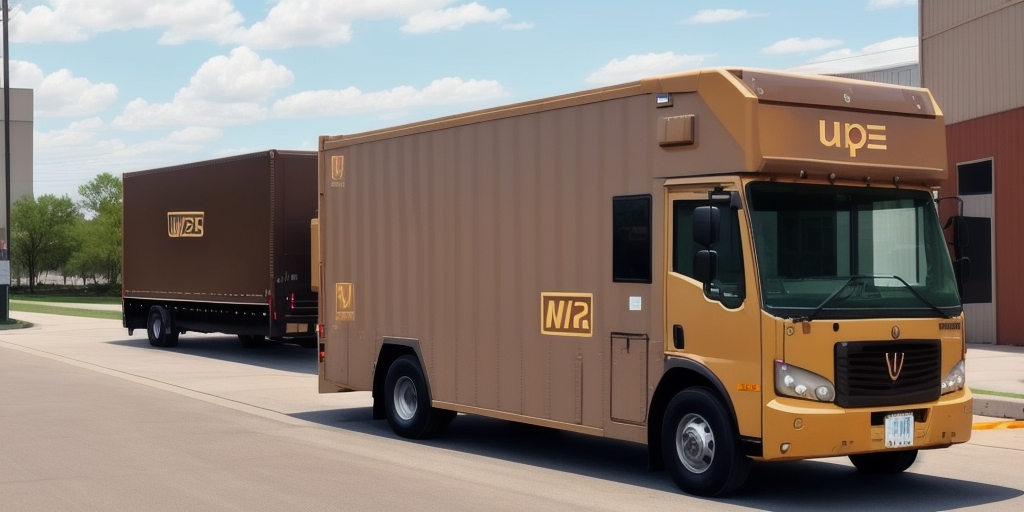UPS Paid Holidays: Comprehensive Guide for Employees
Understanding UPS's paid holiday policy is essential for all employees. This guide provides an in-depth analysis of the company's paid holidays, eligibility requirements, types of holidays offered, and how to manage your time off effectively. Whether you're a new hire or a long-time employee, this information will help you make the most of your benefits.
Overview of UPS Paid Holiday Policy
UPS offers a robust paid holiday policy designed to provide employees with ample time to celebrate important occasions and recharge. Paid holidays at UPS typically include major national holidays and additional corporate holidays, ensuring that employees have time off during significant events throughout the year.
Importance of Paid Holidays
Paid holidays are a critical component of UPS’s employee benefits package. They not only offer employees time to rest and spend with loved ones but also contribute to overall job satisfaction and employee retention. According to the Bureau of Labor Statistics, companies that provide comprehensive paid leave benefits tend to have higher employee morale and lower turnover rates.
Types of Paid Holidays and Time Off
UPS categorizes its paid holidays into several distinct types, each serving different purposes and providing various levels of flexibility for employees.
National Holidays
- New Year’s Day
- Memorial Day
- Independence Day
- Labor Day
- Thanksgiving Day
- Christmas Day
These standard public holidays are observed nationwide, allowing employees to celebrate with family and friends.
Corporate Holidays
In addition to national holidays, UPS observes specific corporate holidays such as Founder’s Day and the company’s anniversary. These holidays provide employees with additional time to engage in company celebrations and activities.
Floating Holidays
UPS offers floating holidays that employees can use at their discretion for personal events, religious observances, or other significant occasions. This flexibility allows employees to tailor their time off to their individual needs.
Paid Time Off (PTO) and Bereavement Leave
Beyond paid holidays, UPS provides Paid Time Off (PTO) for vacations, personal days, and sick leave. The amount of PTO accrues based on an employee’s length of service. Additionally, UPS offers paid bereavement leave to support employees during times of loss.
Eligibility Requirements for Paid Holidays
Eligibility for paid holidays at UPS depends on several factors, including employment status, location, and tenure with the company.
Employment Status
Full-time employees at UPS generally qualify for up to ten paid holidays per year. Part-time employees receive a prorated number of holidays based on the hours they work.
Tenure and Employment Record
Employees typically become eligible for paid holidays after completing a minimum of 90 days of employment. Maintaining a good employment record, free of disciplinary actions and unexcused absences, is also necessary for eligibility.
Location-Based Variations
The number of paid holidays may vary depending on the employee’s location, as UPS adheres to federal, state, and local regulations. Employees should consult their local HR representatives for specific details related to their region.
Managing Your Paid Holiday Entitlement
Effectively managing your paid holiday entitlement ensures that you benefit fully from the time off provided by UPS.
Checking Your Entitlement
Employees can view their paid holiday entitlement through the UPS employee portal. Alternatively, contacting a manager or HR representative can provide personalized information based on your employment contract and length of service.
Working on a Paid Holiday
If you are required to work on a paid holiday, UPS compensates you with holiday pay in addition to your regular salary. Depending on your employment agreement, you may also receive overtime pay or an alternative day off.
Requesting Time Off
To ensure your time off aligns with company operations, submit your holiday requests well in advance. This proactive approach allows managers to accommodate your requests without disrupting workflow.
Impact of Paid Holidays on Salary and Benefits
Paid holidays have a direct impact on your overall compensation and benefits.
Salary Considerations
Paid holidays are compensated at your regular rate of pay, ensuring that taking a day off does not reduce your income. For employees who work on holidays, additional pay may be provided based on company policies and labor laws.
Benefits and Incentives
In addition to paid time off, UPS offers various benefits such as health insurance, retirement plans, and tuition assistance. Employees working on holidays may also be eligible for bonuses or extra vacation days as incentives.
Planning and Scheduling Around Paid Holidays
Effective planning ensures that you can maximize your paid time off without impacting your professional responsibilities.
Advance Planning
Plan your holidays well in advance, especially during peak times like Christmas and Thanksgiving. Early planning helps in securing time off and allows for better workload management.
Prioritizing Tasks
Complete urgent tasks before taking time off and schedule non-urgent work around your holidays. This strategy helps in maintaining productivity and reduces stress upon returning to work.
Role of Unions in Negotiating Paid Holidays
Unions play a vital role in advocating for employee benefits, including paid holidays, at UPS.
Collective Bargaining Agreements
UPS's collective bargaining agreements outline the specifics of paid holiday policies and any additional negotiated benefits. Union members should review their agreements to understand their entitlements fully.
Advocacy and Support
Unions provide support to employees in negotiating better holiday terms and addressing any discrepancies in holiday compensation or entitlement.
Handling Issues with Paid Holidays
If you encounter issues related to paid holidays, such as not receiving the correct pay or being denied eligible holidays, it’s essential to take appropriate steps to resolve them.
Filing a Complaint
Employees can file a complaint through the HR department or their manager. Ensure you have all relevant documentation, including your employment contract and records of hours worked, to support your case.
Seeking Resolution
UPS aims to address and resolve complaints promptly. If the issue persists, consider seeking assistance from labor boards or legal advisors.
Comparison with Industry Standards
Understanding how UPS’s paid holiday policy stacks up against industry standards can provide valuable insights into the competitiveness of its benefits package.
Industry Benchmarking
Compared to other logistics and delivery companies, UPS offers a comprehensive paid holiday policy that aligns with or exceeds industry norms. This includes a balanced mix of national and corporate holidays, along with flexible floating holidays.
Employee Satisfaction
Employees at UPS generally report high satisfaction levels with the holiday policies, citing the flexibility and adequacy of time off as key benefits.
Conclusion
UPS’s paid holiday policy is a fundamental benefit that enhances employee well-being and satisfaction. By understanding the various types of holidays, eligibility requirements, and how to manage your time off, you can fully leverage the benefits offered by UPS. Whether you're planning your holidays or navigating compensation for working on holidays, UPS provides the necessary support to ensure a balanced and rewarding work experience.








